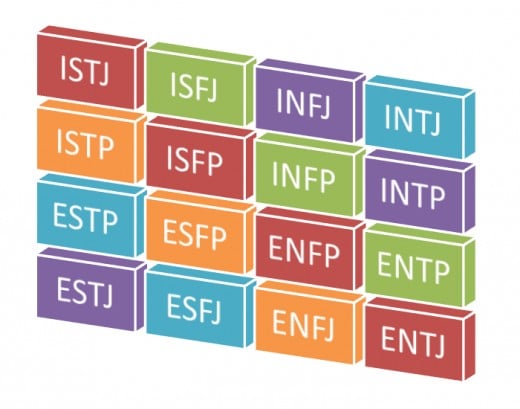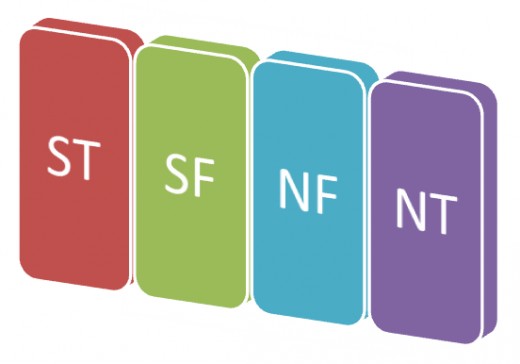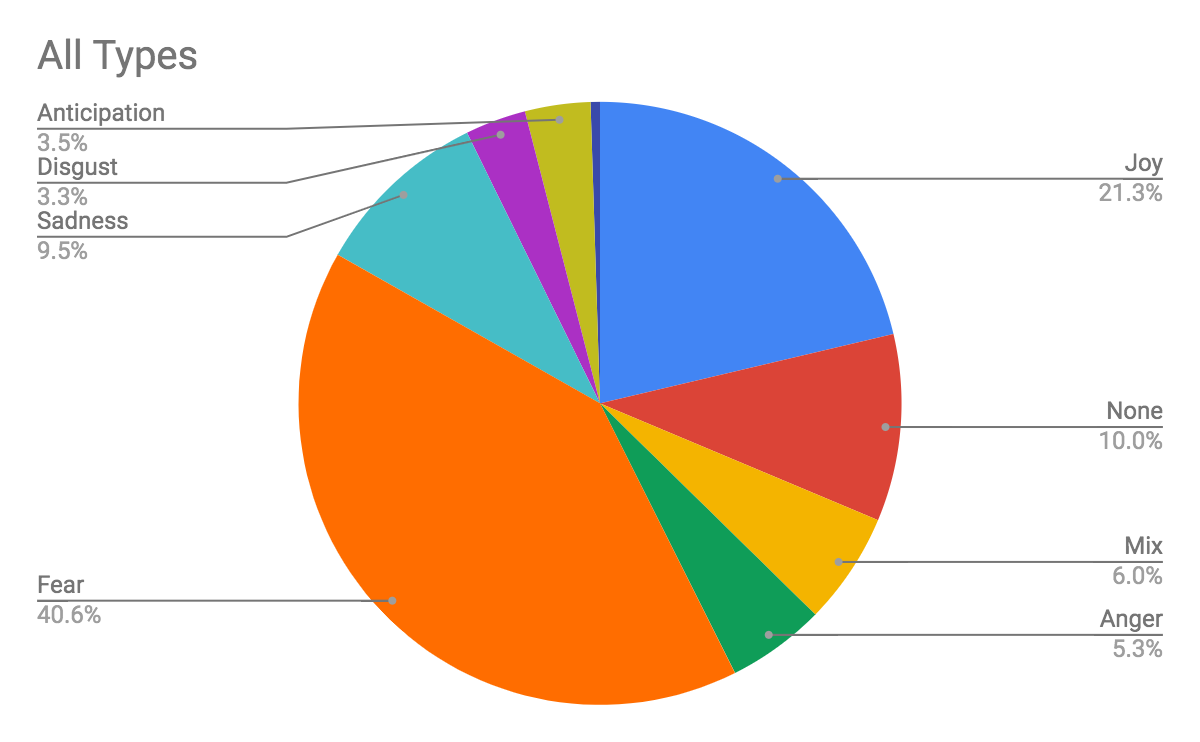Picking a Career: Using a Personality Test for Career Choices

Pick Your Career with Personality Types
To feel rewarded in any career it is important that your personality type matches your career choice. If you can find a career that suits your personality you will be more likely to succeed and enjoy the career that you have chosen. Everyone wants to feel satisfied and fulfilled in their career and to do this you should consider which careers suit your personality type.
To help you determine which careers match your personality we will be using the Myers Briggs Personality Table. The Myers Briggs Personality Table shown above organizes the various personality types so that personality types that are similar will be near each other. In this case we are going to look at the similarities of types found in the individual columns of the table. Hopefully, at the end you will have a better understanding of yourself and the careers that mesh well with your individual personality.
Free MBTI Personality Test
Before you can begin to use any of the information below you will need to know what your personality type is. The MBTI personality test is a great indicator of what careers you may succeed at. Try taking this free MBTI Personality Test and come back to see which careers your personality will work best in.
Finding Your Career Interests
The columns of the Myers Briggs table are the best place to look when trying to use personality to find a career. This is because the columns are divided by the way we take in information and by how we make our decisions. When these two psychological preferences are combined they can give a very clear indication of what kind of career you may be interested in.


Perception: Intuition vs Sensing (N vs S)
This is the second Psychological preference and it represents how you take in information and process it. If your the type of person who is more of a hands-on type of person you are most likely an S or sensing type. If you prefer a more theoretical approach to things you are more likely to be an N or an Intuition type.
Career Ideas For Sensing type
- Construction
- Banker
- Police Officer
- Supervisor
- Sales
- Administrator
- Scientist
- Supervisor
Career Ideas for Intuition Type
- Human Resources
- Teaching
- Management
- Lawyer
- Engineering
- Artist
- Psychologist
- Writer
Sensing Type
A person who is the Sensing type will prefer a career where they can be more hands-on, and deal with hard facts. They prefer careers that are more practical and careers that leave little room for any sort of gray area. Sensing type people thrive in environments that are fact driven and realistic. They will do well in any career that involves a significant amount of attention to detail. They are naturally very aware of their surroundings and are able to pick out small details in their environment.
Intuition Type
A Intuition type person will prefer a career that allows them to find patterns, explore theories and discover possibilities. They will prefer a job that allows them to be inventive and imaginative. Intuition type people are capable of seeing the big picture and struggle with detail oriented work. Intuition type people do well in artistic careers or careers that allow them to explore ideas and information.

Decision Making: Thinking vs Feeling (T vs F)
In nearly every career you will have to make decisions. Ideally, you want to have a career where decisions come easily so that you feel confident when making them. The more natural you feel when making decisions in your career the more confident you will become. Everyone weighs different aspects when making a decision. Some people focus on logic and some people focus more on their personal value system. If you can find a career that caters to the way you make decisions you will be able to make decisions quickly and with confidence.
Career Ideas for Thinking Type
- Management
- Lawyer
- Engineering
- Administrator
- Construction
- Banking
- Police Officer
- Scientist
Career Ideas for Feeling Type
- Teacher
- Supervisor
- Sales
- Psychologist
- Artist
- Writer
- Doctor
- Human Resources
Thinking Type
The thinking type person makes decisions using logic. They still feel emotion when making difficult decisions, but they are more likely to go for the most logical solution. The thinking type person will do well in careers that involve logical decision making rather than decisions that involve strong emotions. A Thinking person will feel most confident is in a career that focuses on information and logical decision making.
Feeling Type
A feeling person focuses on their value system when making a decision. This is not to say that logic isn't involved; however, a feeling type person will likely make the decision based on how they feel about it. Often times they will make decisions based on compassion or another belief even if it isn't the most logical solution. A feeling person will do well in a career that allows them to make decisions using compassion and their personal values rather than always using the most logical answer.

Summary of Personality Types and Career Choice
ST
| SF
| NF
| NT
| |
|---|---|---|---|---|
Focus
| Objective and Analytic
| Warmth and Concern
| Focused on Potential of People
| Theories, Concepts and Systems
|
Interest
| Careers with technical skills that involve hard facts.
| Careers that involve caring for others or service oriented.
| Jobs that involve encouraging and improving others
| Careers involving theories and technical skills.
|
Career Ideas
| Banking, Construction, Police
| Doctor, Sales, Superviser
| Teacher, Writer, Psychologist
| Engineering, Management, Lawyer
|
Other Psychological Preferences of Myers Briggs
The "Intuition vs. Sensing" and "Thinking vs. Feeling" psychological preferences may have the largest impact on your career choice, but the other preferences will affect your choice as well.
An obvious example of this is the first psychological preference "Introvert vs. Extrovert". An Extrovert person is going to prefer a career that is people oriented such as teaching or being a manager. An introvert type person may prefer a career where they can work by themselves like being an engineer or a writer.
The fourth and final psychological preference probably has the least influence in your career choice, but it will likely make an impact. The "Judging vs. Perceiving" preference represents how we act in the outside world. A Perceiving type person is going to want to work in a career where they have some flexibility and don't need to make difficult deadlines. A Judging person is going to want to work in an environment that is structured and has a rule-abiding environment.
Other Factors that Impact Career Choice
I think it is really important to mention that personality is not the only aspect of yourself that should be considered when trying to make a career choice. When picking a career you need to consider many things prior to coming to a final decision. I have listed a few below:
Aspect to Consider
| Questions to Ask Self
|
|---|---|
Hobbies and Interests
| What are you interested in?
|
Skill Sets
| What are you good at?
|
Education
| How long are you willing to go to school?
|
Values
| What is important to you?
|






